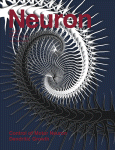Welcome to Purple Pawn, covering games played around the world by billions of people every day.
Gambling: Almost Winning Fools the Brain
22 Feb
Posted by Yehuda Berlinger as Card Games, Classic Board Games, Electronic Games, Modern Board Games, Other, RPGs
 According to a new study published in Neuron, almost winning at gambling excites the same areas of the brain as winning, so long as any sort of player action was involved (even if the action was not related to the outcome). That’s why a slot machine that gives two cherries and a banana (almost!) will have people pumping more quarters than one in which people lose dramatically.
According to a new study published in Neuron, almost winning at gambling excites the same areas of the brain as winning, so long as any sort of player action was involved (even if the action was not related to the outcome). That’s why a slot machine that gives two cherries and a banana (almost!) will have people pumping more quarters than one in which people lose dramatically.
The lead author says:
On games where there is some skill involved, like target practice, it makes sense to pay attention to near-misses. However, on gambling games where the wins are random, like slot machines or roulette, near-misses do not signal your future success. Importantly, our volunteers in this study were not regular or problem gamblers, and so these findings suggest that the brain may naturally respond to near-misses in this way.
Makes sense to me. The natural reaction to “almost” is “just a little more”. A person thinks that just a little more effort on his or her part will do it, even if the effort isn’t related. And even if the “near miss” is built into the system.
Game designers: use this information wisely.
(source)
3 Comments
Sorry, the comment form is closed at this time.
Trending
- Massdrop.com
- Oh the Irony—Illuminati Card Game Continues to Inspire Conspiracy Theorists
- Home
- Footprints, an Educational Ecology Game
- USPS Adds Board Game Flat Rate Box
- Baila, the Estonian Drinking Card Game
- Crystal Caste Wins Dice Patent Suit Against Hasbro
- Mirror Game, Red and Blue
- Are Board Games Dangerous?
- The Truth About Dominoes On Sunday in Alabama
Archives
Most Popular Articles
- Oh the Irony—Illuminati Card Game Continues to Inspire Conspiracy Theorists
- The 20 Most Valuable Vintage Board Games
- The Truth About Dominoes On Sunday in Alabama
- Sequence Game, and Variants
- USPS Adds Board Game Flat Rate Box
- Baila, the Estonian Drinking Card Game
- The 13 Most Popular Dice Games
- Are Board Games Dangerous?
- Guess Who? The Naked Version
- What Happened to the Jewel Royale Chess Set?
Recent Posts
- Toy Fair 2019—Breaking Games
- Talisman Kingdom Hearts Edition
- Toy Fair 2019—Winning Moves
- Toy Fair 2019—Games Workshop
- Toy Fair 2019—Star Wars Lightsaber Academy
- Toy Fair 2019—Stranger Things Games
- Toy Fair 2019—HABA
- Licensing Roundup
- Game Bandit
- 2018 A Difficult Year For Hasbro But Not For D&D Or MtG
Recent Comments
- on Toy Fair 2019—Winning Moves
- on Game Bandit
- on Second Look—Dungeons & Dragons Waterdeep Dragon Heist
- on Crowdfunding Highlights
- on Beyblade SlingShock
- on Game Bandit
- on Game Bandit
- on Watch This Game!, the Board Game Review Board Game
- on Second Look—Vampire: The Masquerade 5th Edition
- on Palladium Books Loses Robotech IP License, Cancels Five-Year-Overdue Robotech RPG Tactics Kickstarter





That is very interesting information, and quite believable. How would you see that fact being worked into a board game design? Perhaps it is inherent in all our board games, and that is why we enjoy playing them again and again — believing that if we try just a little harder or something just a little different, we will win the game (assuming we didn’t win the first time). It is something to think about in relation to other areas of life, too. Thanks for sharing that.
For board game design, this seems to indicate that games that are consistently close, or seem to be close, should be popular. Not sure how that plays out in practice or if the situation is unique to gambling.
Interesting. No wonder there was something about ’em dices.